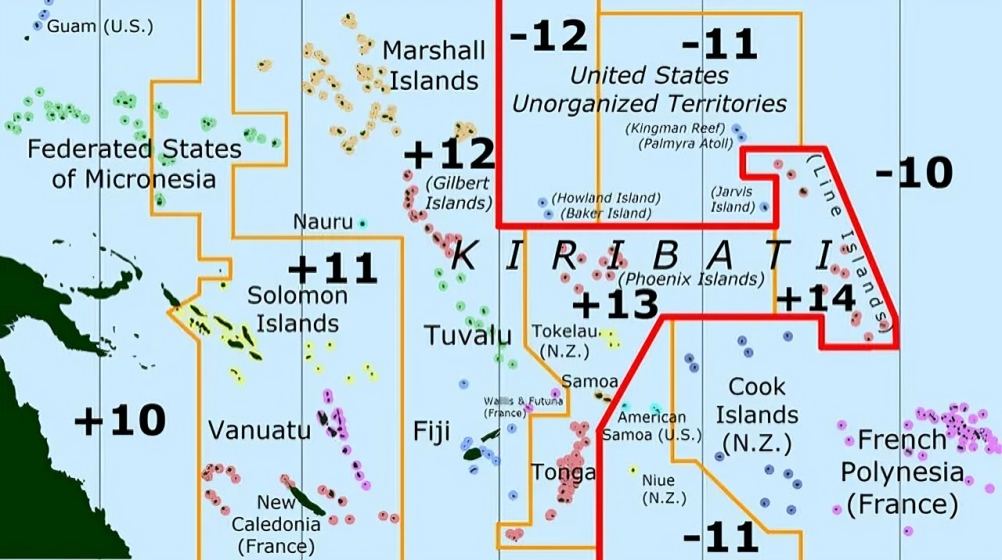International Time Lines are not straight because they are designed to follow political boundaries and avoid dividing countries or regions. The lines are adjusted to align with city and state borders, ensuring that people conducting business in the same place are in the same time zone.
This approach aims to make time zones more practical and acceptable to local populations without causing unnecessary disruptions in daily life
Most people will be surprised to know how convoluted the time zone boundaries actually are!

These are the world’s time zones.
It’s like that in order to address the wishes of islands, states, principalities or countries that have a traditional time zone border running through a part of them. There are various logistical reasons these places may find it advantageous to be included in the adjoining time zone.
Or they don’t want just a portion of their principality to be in an adjoining zone. For instance, Greenland wanted to be in one single zone instead of four. Considering how few people live in Greenland, and how far apart they live, this is a good idea. Several countries prefer just one zone. Convenience and practicality.
There are many places you can walk north or south and enter a new time zone. Several countries offset their local time in increments other than a full hour. As an example, India is 5 and 1/2 hours ahead of GMT time (+5.5). There are several areas in the world where you will gain or lose 90 minutes when you cross a time zone.
Why are International Time Lines not straight?
The International Date Line (IDL) is not straight because it follows the 180-degree meridian of longitude, which is halfway around the world from the Prime Meridian. The IDL is based on the concept of time zones and is used to define the boundary between one calendar day and the next.
The IDL is not a perfectly straight line for several reasons:
- Avoiding Divisions: The IDL is designed to avoid dividing countries, territories, and island groups into two different calendar days. For example, if the IDL were a straight line, it would divide the Pacific island nation of Kiribati into two different days, which would be impractical for the people living there.
- Political and Geographic Considerations: The IDL is adjusted to accommodate political boundaries and geographic features. For example, the IDL deviates to the east around the Aleutian Islands in Alaska to keep the entire state on the same side of the line.
- Historical Reasons: The IDL has been adjusted over time for historical reasons, such as to accommodate colonial interests or to align with existing timekeeping practices.
Nepal is five hours and forty-five minutes ahead of GMT time, (+ 5.75)! Is that weird, or what?! Those zany Nepalese. Logically and geographically, they should be the same time zone as India. But… the rules allow it, and they insist on being a rebel, so that’s how it is; even though Nepal is the only one to take advantage of the 15 minute (7.5 degrees) rule.
So whatever international commission set the lines, it just bends the time zone lines in one direction or another in those particular areas, then bends them back to their traditional position along a longitudinal line as soon as possible, south of the area in question. We don’t want any Times Wars over a thing like this.
If you look at above map, you may notice that China is one time zone. I think this is done for political reasons: the Chinese government wants to maintain a very centralized power structure with Beijing at the center.
As a result, in western China, the solar noon occurs 4 hours after the solar noon in eastern China. This means that if 1 man in Changchun and 1 man in Kashgar both set their alarm for 8 a.m, the man in Changchun will wake up to the sun high in the sky, while the man in Kashgar will wake up in darkness.
Bizarre consequences of International Date lines
Another bizarre consequence of this situation is that passing over the border from Tajikistan to China means you have to switch your watch ahead by 3 hours. (Note: India is also entirely one time zone, likely for similar reasons although India does not span quite as many degrees of longitude so it is slightly less noticeable).
Read More, Bizarre Consequences of International Date Lines

